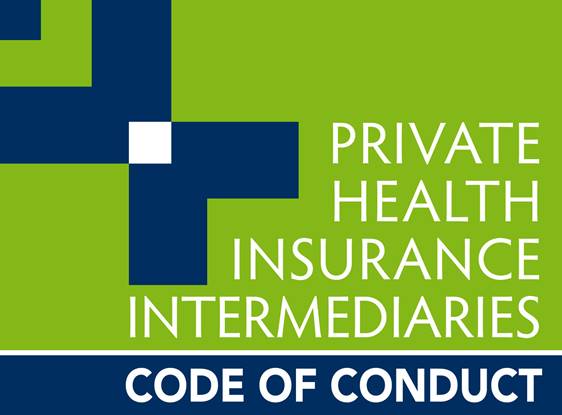What Are Cataracts?
Imagine your eye’s lens becoming cloudy, making everything you see appear blurred or dim. Cataracts are exactly that – a clouding of the eye’s lens. This cloudiness can create problems like difficulty reading, driving at night, or recognising your friend’s smile. Initially, cataracts might develop slowly and not cause significant vision problems, but over time, they can seriously affect your eyesight.
Recognising Cataracts:
- Clouded or blurred vision
- Trouble seeing at night
- Sensitivity to light and glare
- Needing brighter light for activities
- Seeing “halos” around lights
- Frequent changes in eyeglasses or contact lenses
- Fading or yellowing of colors
- Double vision in one eye
About Cataract Surgery
Cataract surgery is a highly effective procedure designed to remove the cloudy lens and replace it with an artificial intraocular lens, restoring clear vision. The surgery, typically lasting around 30 minutes, is performed on an outpatient basis, and patients can choose to have both eyes operated on one day or separately. Modern techniques, like phacoemulsification, use ultrasound to break up the cataract for easier removal, ensuring a quick recovery and improved quality of vision.
Private Health Cover and Cataract Surgery
While Medicare covers cataract surgery, public hospital waiting lists can be long – sometimes up to a year. If you have gold or silver tier private health insurance, you might be covered for cataract surgery. It’s important to note that waiting periods apply, typically 12 months, depending on your private health insurance provider.
Cataract Surgery – Medicare vs Private Health Coverage
| Medicare | Private Health Insurance | |
| Can I avoid public hospital waiting lists? | No. | Yes. |
| Can I choose my hospital? | No. | Yes. |
| Can I choose my own doctor or surgeon? | No. | Yes. |
| Will there be any out-of-pocket costs? | No. | Yes. |

Source: Medicalcostfinder.health.gov.au
Choosing the Right Lens for Your Cataract Surgery
When it comes to cataract surgery, selecting the right lens can significantly impact your vision and lifestyle. There are several lens options available, each catering to different needs and preferences. Your specialist will run you through the choices and find the perfect fit for you.
Monofocal Lenses: Clear Vision, Slight Dependency on Glasses
Monofocal lenses offer excellent visual clarity but maintain the same power throughout. If you have astigmatism or an irregular cornea and opt for a monofocal lens, you may still require glasses for optimal vision at varying distances – be it for driving, reading, or using a computer.
Toric Lenses: Freedom from Glasses for Specific Activities
For those with regular astigmatism seeking freedom from glasses during specific activities, toric lenses are a viable option. These lenses offset corneal imperfections by incorporating a cylinder power axis. This adjustment enhances your chances of seeing clearly at a specified focal point without relying on glasses, giving you more independence for activities like reading, watching TV, or using a computer.
Both monofocal and toric lenses offer the flexibility to choose your focus – distance, intermediate, or near vision. Additionally, considering monovision or mini-monovision might be suitable, especially if you’ve had experience with monovision contacts or refractive surgery. With this approach, one eye is set for distance vision, while the other is set for intermediate or near vision, providing a broader range of vision.
Multifocal Lenses: Embrace Life without Glasses
Multifocal lenses are a revolutionary option, capable of focusing light at varying distances, including distance, intermediate, and near vision. Ideal for individuals who despise wearing glasses, these lenses also come with astigmatism correction if necessary. However, it’s important to note that multifocal lenses are best suited for individuals with otherwise healthy eyes, without irregular corneas or eye diseases like age-related macular degeneration or retinal scars.
Choosing the right lens for your cataract surgery involves considering your lifestyle, visual preferences, whether you have private health cover or if you need to use Medicare benefits and overall eye health. Discussing your options thoroughly with your ophthalmologist will ensure you make an informed decision, ultimately leading to improved vision.
Your Patient Cataract Surgery Journey
GP Visit – It all begins with a visit to your general practitioner (GP) – your first step on the path to clearer vision. During this appointment, your GP will provide initial guidance and might recommend further investigation for cataracts. Typically, your GP will refer you to an optometrist and, eventually, to a specialist.
Optometrist Appointment – The next stage involves an appointment with the optometrist, a professional skilled in eye care. Using a specialized magnifying light, the optometrist carefully examines your eye’s lens, looking for any signs of cloudiness. This examination can even detect early-stage cataracts, allowing for timely intervention and treatment.
Specialist Appointment – Following the optometrist’s evaluation, you’ll meet with an ophthalmologist, a specialist in eye diseases and surgeries. Ophthalmologists possess the expertise to diagnose cataracts, even in their early phases. During this appointment, they conduct thorough and in-depth tests, generating crucial data that will be used for your eventual surgery.
Biometric Scan – A vital step in this process is the biometric scan, a precise measurement of the corneal power and eye length. This data is instrumental in determining the ideal power for the intraocular lens (IOL) that will be implanted during your surgery. These measurements play a significant role in assisting your surgeon in selecting the most suitable lens implant tailored to your eye’s unique requirements.
If you’re ready to explore your private health insurance options and discuss cataract coverage, our team is here for you. Give us a call at 1300 861 413 or email us at hello@health.compare We’re here to help you see clearly and navigate your way to the best health coverage.





















































